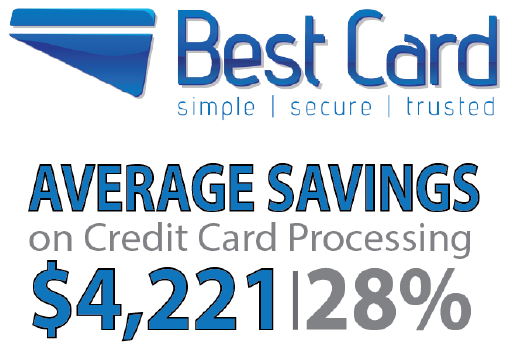7 Rules for Lower Credit Card Processing Fees
Chip debit transactions are least expensive. Of debit cards, those issued by federally regulated banks will yield the lowest rate. Regulated banks are those with over $10B in assets (about 60% of all banks).
2.
A swiped/chip/NFC transaction will usually be less expensive than a keyed transaction for the same card. Encourage payment at time of service! Any time a transaction must be keyed it is important to enter AVS (Address Verification System) information (5-digit billing zip code) to get the lowest possible keyed rate and to avoid a $0.10 per keyed sale “Transaction Integrity Fee.”
Enter the CVV (3-digit code on the back, 4-digits on the front of Amex) for protection in the event of a chargeback. If a patient disputes a keyed transaction and AVS and CVV match, you stand a greater chance of prevailing in the dispute.
3.
Encourage use of debit cards – including Flex Spending (FSA) or Health Savings (HSA) cards. Offices are now seeing more health/flex cards, which often run as debit. Since patients can receive tax deductions on these, it can benefit you and your patients to use this type of payment.
4.
Rewards cards are more expensive to process. If someone is getting airline miles, hotel stays or cash back, someone is paying for those rewards — and it’s not the bank or the airline. Unfortunately, regulations prohibit merchants from refusing a credit card payment simply because it is a rewards card, but you can encourage the use of other payment types. Consider posting a sign: “Help us keep our costs low – pay with a check or debit card. Got an HSA or Flex card? Don’t forget to use it!”
5.
Insurance payments by Virtual Credit Card (VCC) are expensive. Most insurance companies now send VCCs for payment. Unfortunately, these cards often fall into keyed-corporate interchange rates, which are among the highest rates. You can try calling the insurance company to request payments via check as the preferred payment but most will no longer do this, and it does have a higher risk for embezzlement/abuse.
You can register for electronic funds transfer (EFT) payments. HIPAA requires all health plans to offer standardized EFT using the Automated Clearing House (ACH) Network for practices that request it. ACH EFT allows health plan payments to be directly deposited into a designated bank account. These EFT transactions have much lower fees (<2%) than those charged for VCC transactions (often 3.15%), and these EFTs fund very quickly. When/if you do have to take Quick Remit Insurance Cards, always enter the zipcode entered on the form.
6.
Void transactions, rather than refunding, when possible. Voids can only be processed while the batch is still open, the same day as the original transaction. This is especially important if a cardholder “changes their mind” about which card to use. If not voided the same day, your batch will close and you will get funded for the sale amount. If a cardholder later requests you run a different credit card (i.e. Health Savings Account), always refund to the card that original sale was processed on. Most processors charge fees on both sale and refund.
7.
PCI Compliance – The Payment Card Industry (PCI) requires that each merchant (that’s you) complete an annual Self-Assessment Questionnaire. We call this ‘HIPAA for credit card processing.’ If processing online or on a terminal processing over IP (ethernet) instead of a phone line, you are also required to pass quarterly network vulnerability scans. If you fail to complete PCI requirements in a timely manner, a monthly non-compliance charge is assessed and passed on to the merchant. You should receive an email when any compliance requirement is within 30 days of expiration. Please do not ignore these: >80% of the statements we analyze show PCI non-compliance fees of $18-$30 per month! Best Card has a 90%+ PCI compliance rate and we actively strive to keep our merchants in compliance.
DO THE MATH to calculate your overall effective rate (this is what you are actually paying to take credit cards): Fees ÷ Dollars Processed = Effective Rate.
Best Card’s average dental practice has an effective rate of 1.9-2.2%. Call 877.739.3952 with any questions. For a detailed no-obligation analysis, fax or email a recent credit card processing statement to 866.717.7247 or Compare@BestCardTeam.com.

